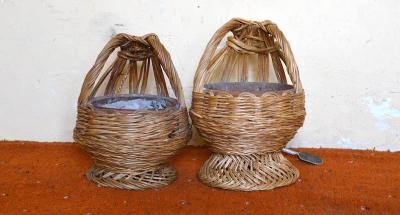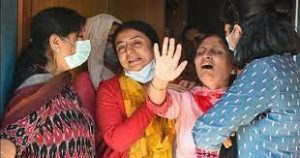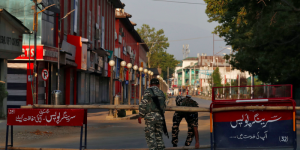
Despite modern heating devices, traditional Kangri still the most popular in Kashmir
In order to protect themselves from the bitter cold during winters, the people of Kashmir use a special device for warmth, which is called Kangri in the local language. In these days of cold, Kangri remains the support of the people in the traditionally dressed pheran.
Kashmiris have been using Kangri since centuries. Traditionally, it is actually a beautiful basket made of flexible beed twigs with a handle and inside a thick ring (matki) of baked clay called ‘kandal’ in Kashmiri.
Burning coals are placed in the kangri, which stays hot for seven to eight hours, and everyone carries it easily from one place to another inside their furn, a long coat made of woollencloth, to keep themselves warm.
Kangri is a part of Kashmiri tradition. Without it, the harshest days of winter become more difficult.
The kangri makers make attractive and beautiful kangris of different designs and they are sold not only at the shops but also by peddlers. There, customers also buy kangri with great gusto.
Along with the kangri business, the potters who make the pottery required for it also earn a good amount of money.
A person dealing in kangri said that the price ranges from Rs 200-900. However, the rate depends on the texture and material.
A ‘dallan’ i.e. wood, is attached to the kangri with a cord which serves to increase the heat by inverting the coals.
Kangri serves as a portable heater for people in the sub-zero temperatures of Kashmir.
During winters, power outages are common in the Kashmir Valley, making all modern heating devices pale in comparison to the traditional kangri.

